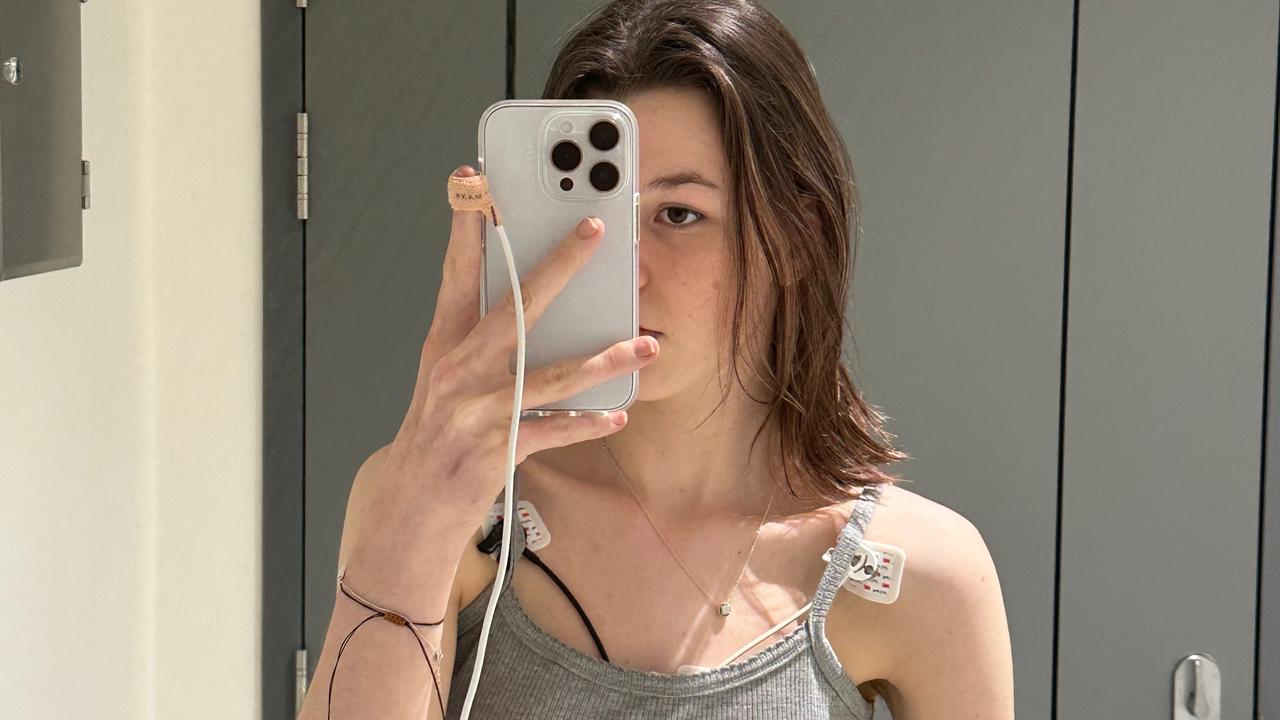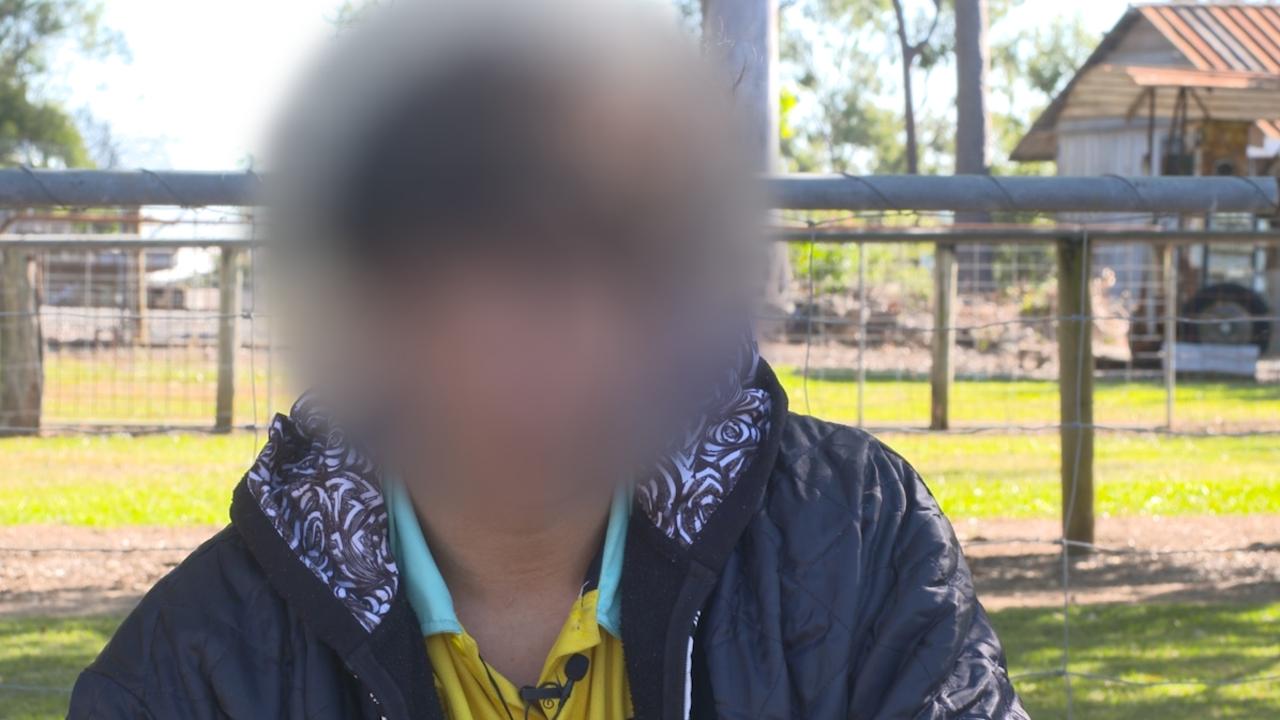It’s over: SA’s pandemic emergency declaration lifted after 793 days in step towards ending Covid fight
In a significant step forward in the fight against Covid, the state’s Major Emergency Declaration has been lifted after 793 days.
Coronavirus
Don't miss out on the headlines from Coronavirus. Followed categories will be added to My News.
South Australia has exited the Covid-19 state of emergency for the first time during the coronavirus pandemic, marking a huge milestone for the global response.
In what Premier Peter Malinauskas described as a “historic and significant step forward” after 793 days, the Emergency Declaration was scrapped on Tuesday afternoon.
As foreshadowed by The Advertiser, Cabinet’s Emergency Management Council was told it was now safe, and appropriate, for Police Commissioner Grant Stevens to revoke the Covid-19 orders.
Ending Mr Stevens’ role overseeing the pandemic response since March 2020, the laws were officially revoked at 12.25pm on Tuesday, May 24.
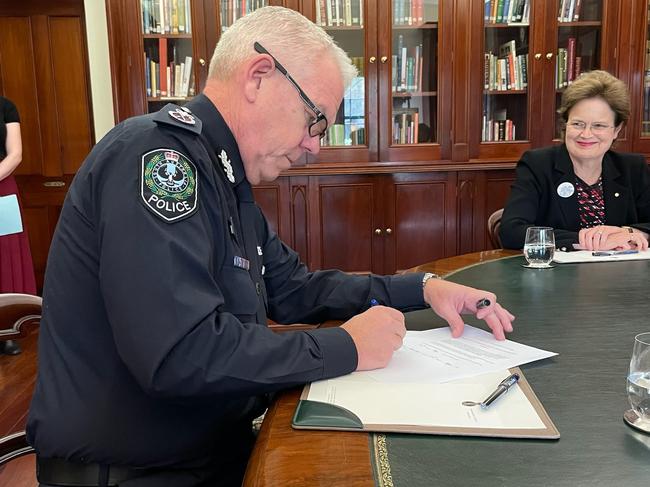
SA is believed to be the first state to officially end such a Covid pandemic response.
Mr Malinauskas, who had vowed to end the state of emergency by June 30, announced the milestone at Parliament on Tuesday afternoon with Health Minister Chris Picton, Mr Stevens and chief public health officer Professor Nicola Spurrier.
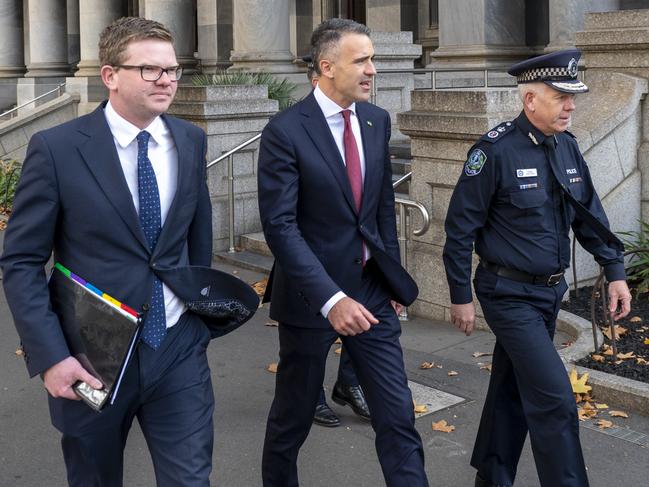
The Premier paid tribute to former Premier Steven Marshall, Mr Mr Stevens and Prof Spurrier’s work.
“This is a historic and significant moment for our state,” the Premier said.
“Today’s lifting of the Major Emergency Declaration would not have been possible without the hard work and sacrifice of South Australians over the past two years.
“On behalf of the people of South Australia, I want to thank Grant Stevens for his extraordinary service as State Co-ordinator since March 2020.”
The Premier added: “Without question, Commissioner Stevens’ effort has been one of the highest quality displays of leadership in our state’s history”.
“We’ve seen Commissioner Stevens have to make some of the most difficult judgment calls that have ever been made in the history of our state.”
“We should be under no misapprehension around the fact that there are South Australians still alive today as a result of the work of Grant Stevens, Nicola Spurrier and others.”
The details emerged as authorities also scrapped mask rules in high schools.
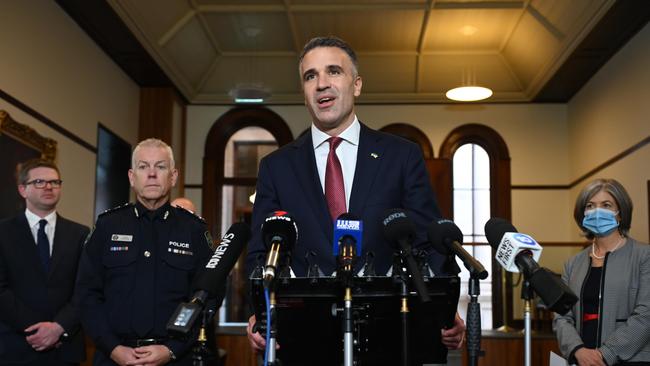
“We must remember that the lifting of the Major Emergency Declaration does not mean the pandemic is over,” the Premier said.
“We cannot be complacent. We must maintain vigilance to protect our community.
“That means getting vaccinated, wearing masks where required, getting tested if unwell, and quarantining while Covid positive.”
The EMC meeting heard that parliament last week passing changes to public health laws could pave the way Mr Stevens’ Covid powers as state co-ordinator to end.
Covid-19 chiefs sitting on the EMC, which includes Mr Stevens, will collectively decide any more easing of restrictions.
During a special Executive Council meeting at Government House on Tuesday morning, Governor Frances Adamson assented the new Public Health Act.
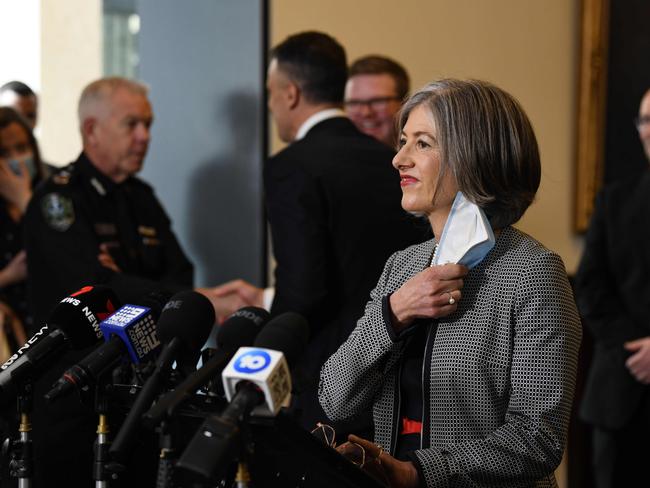
Mr Stevens, who has been in charge of the state’s Covid fightback since March 22, 2020, then advised Mrs Adamson in a seperate meeting that he was lifting the Major Emergency Declaration. The short meetings went for no longer than 15 minutes in total.
“The meeting... where I was able to sign your application was a relatively straightforward process I suppose,” Mr Stevens said.
“(It was) almost underwhelming, in some respects when you think about one signature bringing to a conclusion a declaration which has been in place for 793 days.”
He said he had been considering every day for the past three months when to scrap it.
Since Mr Stevens declared the declaration under the Emergency Management Act, at the height of the pandemic’s first wave, he has requested an extension 28 times that underpinned 289 separate legal directions.
It is usually reserved for official response to emergencies such as natural disasters.
Mr Stevens said it had been “a privilege” to act as state coordinator throughout the pandemic but warned it “was not over yet”.
“We still need to be vigilant and it’s coming to a point now where personal responsibility is more important than it ever has been,” he said.
He said the state’s response was world leading but admitted he thought the response would only last that winter 2020.
The second longest time such a declaration has been issued was during the summer’s floods in the state’s north.
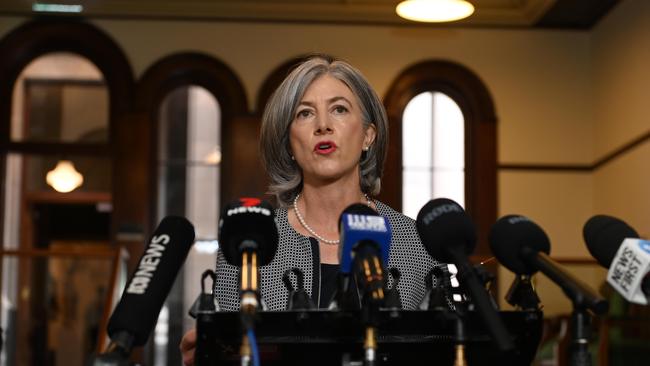
Mr Stevens hailed the “sense of community that we’ve enjoyed in South Australia” as the state’s biggest achievement.
“The willingness to work together, the willingness of the whole community to comply with quite severe restrictions that have been put in place, notwithstanding the frustrations that have been voiced,” he said.
“And I fully respect those frustrations. We saw different sectors within the community still confined with those very harsh restrictions.
“I think that’s probably the most significant thing that’s enabled us to effectively manage the pandemic and with some level of bias suggests that South Australia has done better than anywhere else.”
But he said an extensive review was needed into the state’s response but added it was “too early” to say identify any mistakes from decisions made “often with very short timeframes involved and a need to act very quickly”.
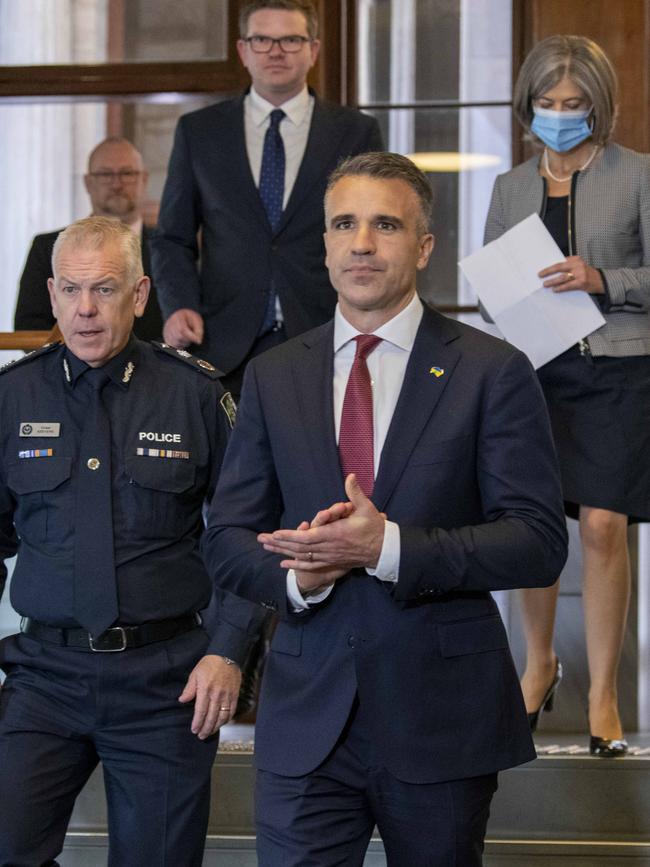
Prof Spurrier said the amended Public Health Act would provide the legal framework to require vaccination for healthcare workers, aged care workers and people working in disability.
“The pandemic is not over. We need to continue focusing on vaccination and making sure all your loved ones are up-to-date with their Covid vaccines,” Prof Spurrier said.
“I want to personally acknowledge the work of the commissioner - an absolutely top bloke to work with and I’ve enjoyed every moment.”
The government said the declaration granted him extraordinary powers to issue legal directions such as lockdowns, capacity restrictions and quarantine orders as the state sought to contain the spread of the virus.
Under state law, the declaration ended every 28 days and needed Cabinet and the Governor to sign off any new extension.
Senior government sources said officials had been working since last Thursday and over the weekend in order for the decision to be made on Tuesday.
The new public health laws will enforce Covid isolation, vaccination mandates and mask use in high-risk settings such as hospitals, healthcare facilities, nursing homes or jails.
But any new restrictions such as lockdowns, density bans or mask mandates will need a new emergency declaration.
The EMC will continue to meet every fortnight.
New Covid-19 laws that threaten jail for serious breaches passed state parliament earlier this month after Mr Malinauskas secured a surprise deal.
In a decision that caught the opposition off guard, the Premier revealed changes to public health legislation would pass the upper house with the support from the Greens and SA Best.
But the opposition rejected the idea of jailing people for Covid breaches.
Under the laws – which will allow the emergency declaration to be scrapped – a maximum penalty for pandemic breaches is two years’ jail or a $75,000 fine for business and $20,000 for an individual.
Under changes the Greens and SA Best sought in confidential talks, a parliamentary oversight committee will be formed and there will be an appeals process for people handed penalties.
Breaches in NSW, Queensland and Tasmania are punishable by a fine and/or a maximum six months in jail. Victoria, NT and ACT laws only give fines.




